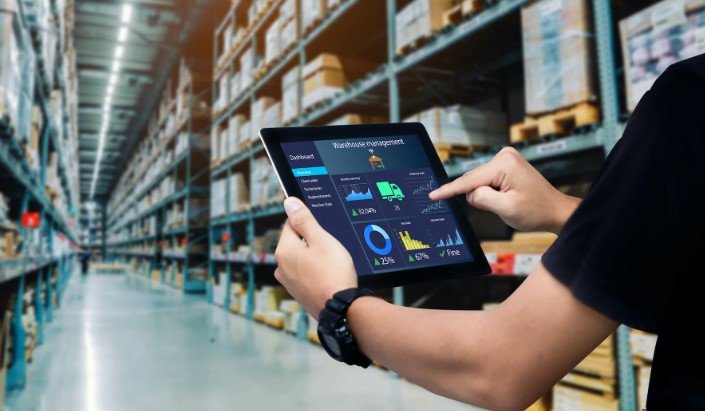The constantly evolving world of global trade hinges on the effective transportation and management of goods across borders and within supply chains. This intricate dance of delivering products efficiently and economically is increasingly being transformed by logistics technology. As global markets expand and consumer expectations rise, the logistics industry is leveraging technological advancements to create smarter, more streamlined operations. The implementation of sophisticated logistics technology is paramount in meeting the challenges of modern global trade, as it enhances visibility, optimizes inventory management, and ultimately drives profitability.
Understanding Logistics Technology
Logistics technology encompasses a variety of tools and systems designed to improve the efficiency of logistics and supply chain operations. From advanced tracking systems and route optimization software to automated warehousing solutions and AI-driven analytics, this technology plays a crucial role in the management of logistics processes. The adoption of logistics technology allows businesses to automate repetitive tasks, reduce human error, and improve decision-making based on real-time data.
The Impact of Logistics Technology on Efficiency
One of the most significant contributions of logistics technology is its capacity to enhance operational efficiency. Traditional logistics methods are often fraught with delays and inefficiencies due to manual processes and lack of visibility. By leveraging technologies such as Internet of Things (IoT) devices and cloud computing, companies can track shipments in real time, anticipate delays, and make informed routing decisions swiftly. Enhanced data analytics provide insights into operation metrics, allowing organizations to identify bottlenecks and improve their overall service delivery.
Enhancing Supply Chain Visibility
Visibility is a critical component of effective logistics management. Customers today expect full transparency regarding the status of their shipments, making logistics technology an essential element in building trust. Technologies such as GPS tracking and RFID (Radio-Frequency Identification) facilitate real-time tracking, providing updates on the location and condition of goods as they move through the supply chain. This enhanced visibility not only satisfies customer expectations but also enables logistics managers to respond nimbly to issues, improve safety protocols, and optimize their operational strategies.
The Role of Automation
Automation stands as a cornerstone of logistics technology, streamlining mundane tasks and freeing up human resources for more complex decision-making roles. Automated warehouse systems, such as robotic picking solutions, ensure accurate order fulfillment while reducing the time spent on manual labour. This technology not only minimizes human error but also significantly increases throughput. Additionally, automated inventory management solutions help companies maintain optimal stock levels by predicting demand patterns and managing reorder processes.
The Integration of Artificial Intelligence
Artificial Intelligence (AI) plays a transformative role in logistics technology, offering predictive insights that can drastically alter operational strategies. AI systems analyze historical data and industry trends to forecast demand fluctuations, helping businesses avoid overstocking or stockouts. Moreover, AI-driven algorithms can optimize delivery routes in real time by considering traffic patterns, weather conditions, and vehicle performance, significantly reducing transportation costs and improving delivery times.
Sustainability and Logistics Technology
As environmental concerns grow, the logistics industry is embracing sustainability initiatives, and logistics technology is central to these efforts. Technology such as route optimization can reduce the carbon footprint by ensuring that deliveries are made using the most efficient paths. Furthermore, electric and hybrid vehicles are becoming more prevalent, aided by tracking technologies that enhance fleet management. By adopting such measures, companies can not only comply with regulations but also appeal to a consumer base that is increasingly prioritizing sustainability.
Blockchain Technology in Logistics
Blockchain technology adds another layer of innovation to logistics operations. This decentralized ledger provides unalterable records of transactions and movements regarding goods, thereby enhancing trust between parties. In global trade, where multiple entities are involved, blockchain facilitates secure sharing of data in real-time. This transparency reduces fraud, streamlines documentation processes, and accelerates payments, making logistics operations more efficient and reliable.
Overcoming Challenges with Tech Integration
While logistics technology offers numerous opportunities for optimization, integrating these systems can present unique challenges. Changing established workflows requires careful planning and training. Companies must invest in employee education and engagement to ensure that technology is used effectively and to its full potential. Additionally, ensuring interoperability between different technology systems is crucial to avoid disruptions in operations.
The Future of Logistics Technology
Looking ahead, logistics technology is poised for continued evolution, driven by advancements in AI, machine learning, and data analytics. The rise of e-commerce and globalization means that logistics operations must be ever more agile and adaptive. Innovations such as autonomous vehicles and drones for deliveries may soon become commonplace, further revolutionizing the landscape of logistics and global trade. As companies continue to embrace digital transformation, those that leverage logistics technology effectively will retain competitive advantages in an increasingly complex marketplace.
Conclusion
In conclusion, logistics technology has transformed the way we manage and operate supply chains. From enhancing efficiency to increasing visibility, automation to sustainability efforts, and beyond, this technology plays a critical role in driving businesses towards success. As we move into an increasingly digitized world, companies that invest in and effectively integrate logistics technology will be well-positioned for growth and competitiveness in the future. So let us continue to embrace technological advancements and utilize them to their full potential in our logistics processes. The possibilities are endless! Let’s see where the future of logistics technology takes us next.

